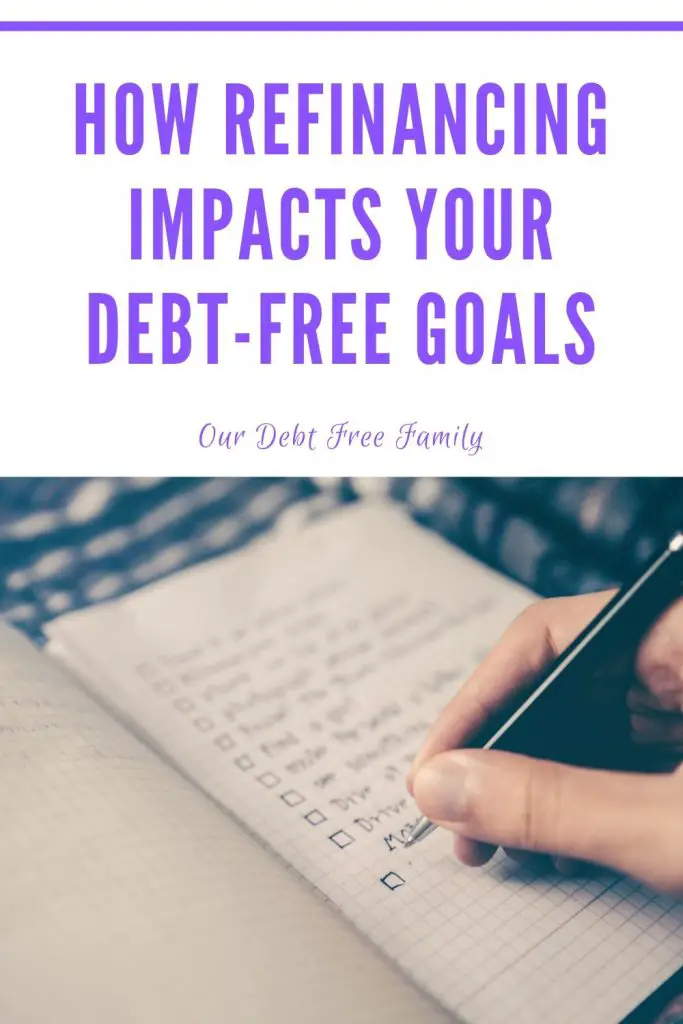
Mortgage rates are going down pretty steadily amidst the pandemic. Because of this, many people are looking into refinancing their home loans. Like any other loan you take out, refinancing will have an impact on your debt-free journey, and it can be a good or a bad thing.
What Does Refinancing Mean?
To refinance something simply means to finance it again. This is done by starting a new loan, usually with a lower interest rate. Refinancing loans are typically for auto and mortgage loans, but it is possible to refinance any large loan you may have.
You may be thinking to yourself, “Wow, that sounds like a great idea, I could save so much money!” While it sounds really great, there are a few catches. You’ll need to weigh the pros and cons and thoroughly research your current loan and refinance offers.
How it Can Impact Your Debt Freedom Journey
Refinancing can be both good and bad when it comes to your debt freedom journey. In some cases, refinancing one of your loans may make it easier to reach other financial goals. If that is true for you, then, by all means, refinance!
Additionally, refinancing can help lower your interest rate (sometimes significantly). If refinancing your loan will drive that rate down, great. It is not worth refinancing if the rate drops less than 1% or 2% below your current rate. Regardless, it is still a good idea to try and pay it off in the same amount of time or less. Remember, your long-term goal is still to be totally free of your debt.
When You Definitely Should Not Refinance
While your reasons for refinancing may totally make sense, it isn’t the best option for everyone (or even a good one). Absolutely do not refinance if any of the following is true.
- You are only refinancing for a lower monthly payment.
- If refinancing is a way of consolidating debt for you, don’t do it. This can be a huge financial mistake! It perpetuates how much you rely on debt for everyday living and can cost you in the long-run.
- You are planning on selling the home (or car) soon. It doesn’t make sense to refinance.
- If your credit is bad, don’t refinance. You won’t qualify for lower rates.
- You are unable to pay the closing costs of the refinance (for homes). This is usually between 3% and 6% of the loan amount.
- The loan terms make your loan payment time longer. For instance, if you have paid on your 30-year mortgage for 10 years it wouldn’t make sense to refinance for another 30 years. That only makes it so you’re paying longer.
When it boils down to it if you are interested in refinancing you need to be sure you are doing it at the right time for the right reasons. Do your research and be sure it is the best decision for your financial goals.
Leave a Reply